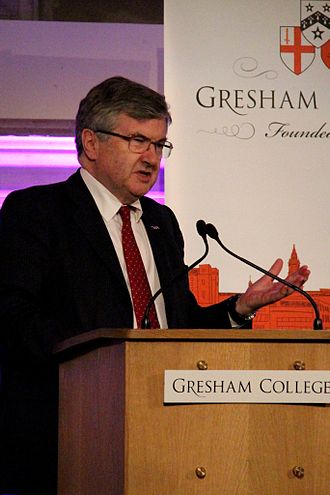I said I needed to add a complementary post to Can We Find History Beneath the Literary Trappings?, one that presented the positive side of historical research showing what is a valid approach by way of contrast with the often fallacious methods and unjustified assumptions of much scholarly research into Christian origins and the historical Jesus.
But soon afterwards I remembered that I have already set out that post and pinned it as one of the Pages in the right hand column of this blog: HISTORICAL METHOD and the Question of Christian Origins. There is little more that I can add to what I wrote there.

As for the question or relevance of Bayesian analysis in historical research reasoning I recommend a post by Christoph Heilig, author of Hidden Criticism? The Methodology and Plausibility of the Search for a Counter-Imperial Subtext in Paul, What Bayesian Reasoning Can and Can’t Do for Biblical Research on the Zürich New Testament Blog. (Of course there is Richard Carrier’s book, Proving history: Bayes’s theorem and the quest for the historical Jesus, and I do get the impression that compared with responses to On the Historicity of Jesus: Why We Might Have Reason to Doubt, few critics have actually engaged with that presentation by Carrier. So if you are one of those who are ad hominem focused so that you treat anything by Carrier as wrong I suggest you read Heilig’s discussion instead.)
Historical research methods are really not difficult in principle, though. Niels Peter Lemche sums it all up most succinctly in something of his that I quoted in another post:
The question about historical information in the OT is a classical historical-critical issue. Here the only demand is that any investigation must be complete and take into consideration every piece of evidence, and there is no question that should not be asked (such as the alleged historicity of David and Solomon).
This should be rather evident, and it is remarkable that is to many people is not, and then begins another project: to find out why it is so difficult for many biblical scholars to go all the way with their critical studies which in this way turn out to be not critical at all but faith based.
Lemche, Niels Peter, 2019. “28392SV: [biblical-studies] What is Minimalism?” Biblical Studies – Yahoo Groups.
That was posted on a scholarly biblical studies discussion list. I cannot help but strongly suspect that had Lemche also referenced the words of his recently departed peer, Philip R. Davies, and included the name Jesus beside David and Solomon, his post would not have been accepted so quietly there.

[S]urely the rather fragile historical evidence for Jesus of Nazareth should be tested to see what weight it can bear, or even to work out what kind of historical research might be appropriate. Such a normal exercise should hardly generate controversy in most fields of ancient history, but of course New Testament studies is not a normal case and the highly emotive and dismissive language of, say, Bart Ehrman’s response to Thompson’s The Mythic Past (recte: The Messiah Myth) shows (if it needed to be shown), not that the matter is beyond dispute, but that the whole idea of raising this question needs to be attacked, ad hominem, as something outrageous. This is precisely the tactic anti-minimalists tried twenty years ago: their targets were ‘amateurs’, ‘incompetent’, and could be ignored. — Philip Davies, Did Jesus Exist, 2012
Just one final point. Lemche has also pointed to the unscholarly tone of certain criticisms:
. . . . in creating an image of a scholar who does not know his stuff. It can be done in a gentle way, as in Long’s introduction. It can be sharpened as in the quote by J.K. Hoffmeister, cited in Long’s introduction, or it can be rude as found in several publications by W.G. Dever and other scholars on the same line like G. Rendsburg. The meaning is the same: do not discuss the points made by these people; just say that they are incompetent.

Those words came to mind yesterday as I was reading a work by a well respected historian of modern Germany, Richard Evans. He is addressing the work of another historian (or amateur) who lacked formal scholarly qualifications and here is how he explained his approach. It was not sufficient to sneeringly dismiss David Irving as a “Holocaust Denier”:
Despite all this, Irving had never held a post in a university history department or any other academic institution. He did not even have a degree. He had started a science degree at London University but never finished it. “I am an untrained historian,” he had confessed in 1986. “History was the only subject I flunked when I was at school.” Several decades on from his self-confessedly disastrous schoolboy encounter with the subject, however, Irving clearly laid great stress on the fact that the catalogue of his work demonstrated that he had now become a ‘reputable historian’:
As an independent historian, I am proud that I cannot be threatened with the loss of my job, or my pension, or my future. Other historians around the world sneer and write letters to the newspapers about ‘David Irving, the so-called historian’, and then they demand, ‘Why does he call himself a Historian anyway? Where did he study History? Where did he get his Degree? What, No Degree in History, then why historian or not? Was Tacitus? Did he get a degree in some university? Thucydides? Dihde get a degree? And yet we unashamedly call them historians – we call them historians because they wrote history which has done (recte: gone) down the ages as accepted true history.
This was true. Irving could not be dismissed just because he lacked formal qualifications.
Evans, Richard J. 2002. Lying About Hitler. New York: Basic Books. 5f
How many tenured scholars in biblical studies have the same approach as the one Richard Evans recognized was important for public perceptions in a debate related to the Holocaust?
